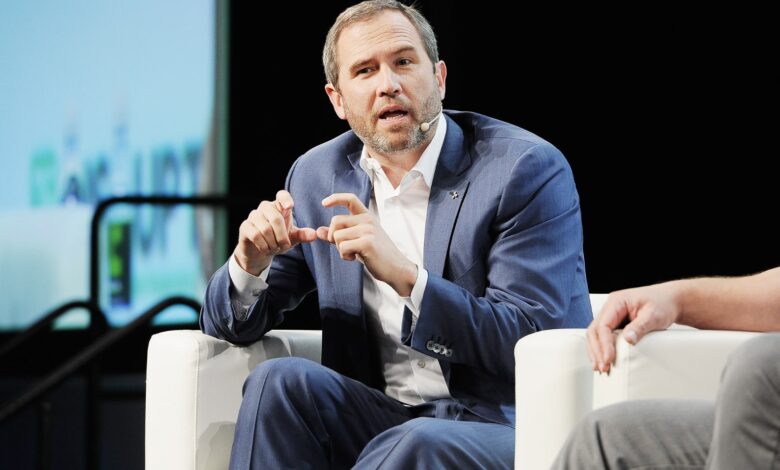Ripple CEO’s Alarming Debanking: A Warning for the Future of Crypto

In a recent interview with CNBC, Ripple CEO Brad Garlinghouse revealed that he has experienced debanking, attributing this to heightened regulatory scrutiny facing the cryptocurrency sector.
Garlinghouse recounted a troubling encounter with a major banking institution, where he had maintained an account for 25 years. He shared that he received a call informing him he had just five days to move his funds.
During the conversation, the bank was candid about its decision. “They were actually super honest,” Garlinghouse noted, recounting the bank’s explanation that being a prominent figure in cryptocurrency had increased scrutiny from federal regulators, leading them to sever ties. “Now, that’s not legal,” he emphasized.
While he acknowledged that other banks are willing to work with him, he raised concerns about the broader implications of such a practice. “Imagine if you extrapolate that out in more banks,” he warned. “If I were cut off from the banking system solely because I’m the CEO of Ripple, that is a hostile administration.”
Later, Garlinghouse confirmed to Coindesk that Citigroup Inc. was the institution that had taken this action.
Despite these challenges, Garlinghouse remains optimistic about the future of cryptocurrency regulation in the U.S. He anticipates a shift in policy after the upcoming election, which he believes could create a more conducive environment for crypto innovation.
He advised U.S.-based fintech companies to explore foreign incorporation to achieve regulatory stability, noting that several jurisdictions already offer clearer guidance for the sector. He cautioned that the U.S. risks missing out on a significant strategic opportunity by failing to embrace blockchain technology, which he sees as essential to the evolving financial landscape.
Garlinghouse also addressed Ripple’s ongoing legal battle with the U.S. Securities and Exchange Commission (SEC). He pointed to a crucial court ruling that determined “XRP in and of itself is not a security,” describing this decision as a pivotal victory for the cryptocurrency industry.
He criticized the SEC’s inconsistent regulatory approach toward cryptocurrencies like Bitcoin and Ethereum, underscoring the necessity for clearer and more reliable guidelines moving forward.
During a conversation with Reece Merrick, Ripple’s Managing Director for the Middle East and Africa, he emphasized Ripple’s unique position at the convergence of two distinct worlds: the traditional financial establishment and the realm of digital assets.
Merrick noted that Ripple’s aim has always been to bridge traditional finance and decentralized finance. Ripple’s focus on addressing cross-border payment inefficiencies using blockchain and crypto, particularly XRP and the XRP Ledger, laid the foundation for its current endeavors.
Despite legal battles with the SEC, he confirmed that Ripple remains steadfast in its pursuit of a fair resolution. “Our recent victories affirm that XRP is not a security,” Merrick stated, expressing confidence in the legal process and Ripple’s ability to navigate regulatory challenges. Ripple’s journey mirrors the evolving landscape of finance and digital assets, characterized by innovation, partnerships, and regulatory hurdles.
In conclusion, Garlinghouse’s experience highlights a troubling reality: the denial of basic banking services to individuals involved in blockchain technology and cryptocurrency is simply unacceptable.
Disbelief in the potential of these innovations should not strip anyone of their fundamental rights, including access to a bank account. In fact, such actions highlight the slow pace of adoption in the crypto space, particularly in the face of ongoing battles with regulatory entities like the SEC.
The industry’s progress hinges on fair treatment and clearer guidelines, and it is imperative that stakeholders advocate for a more inclusive approach that respects the rights of all individuals, regardless of their involvement in emerging technologies.




